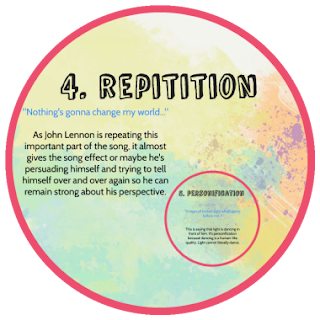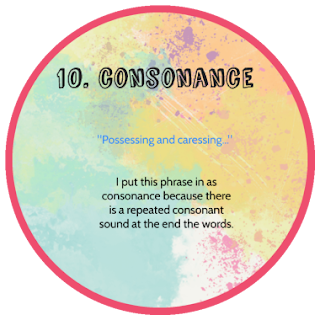Hello!! I'm back. And now i'll share you about narrative text.
Definition
Narrative Text is a type of text that tells a fictional / fictional story with the aim of entertaining in a chronologically interrelated manner.
As an imaginary story, the Narrative Text is not necessarily true, because it is only based on evidence from a group of people who are not true.
Narrative text is an imaginative story to entertain people (narrative text is an imaginative story with the aim of entertaining people).
Generic Structure
To make a Narrative Text, it is endeavored to contain the general structure of the Narrative Text itself, such as:
Orientation: This section contains an opening paragraph where the characters of the story are introduced. (Contains the place, character, and time to read the story, who and when)
Complications: The problem parts of the story begin to develop. (Problems start to arise or begin to occur and begin to develop)
Resolution: The problem part of the story begins. The problem is resolved, either in a happy "happy ending" or a "bad ending" or bad.
Coda / reorientation (optional): A section explaining lessons learned from the story.
Language Feature
Past tense: (Killed, drunk, went, won, sent, etc) (killed, drunk, left, won, sent, etc.).
Adverb of time: (Once upon a time, today, one day, will, yesterday, later, etc) (At any time, today, one day, will, yesterday, later, etc.).
Time conjunction: (When, then, suddenly, before, after, until, a soon as, etc) (when, then, suddenly, before, after, arrived, immediately, etc.).
Specific characters / use of specific story characters, not general ones. (Cinderella, Alibaba, Snow White, Tangled, Ariel, etc.)
Action verbs / verbs that indicate an action: (Killed, walked, wrote, stayed, dug, etc) (killed, walked, wrote, stayed, dug up, etc.)
Read out live speech to make the story come alive (Direct speech). (Princess said, "My name is Princess) (Princess said," My name is Princess). Live speech using the present tense.
Saying and thinking verb: A verb that denotes utterance or reporting. (Said, told, thought, etc) (said, told, thought, etc.).
Characteristic features
The following are the characteristics of Narrative Text, including:
Narrative Text tells a story from the past.
Use a noun (noun) to replace animal, person, or object pronouns in the story. (The Dwarfs, Carriage, etc) (Dwarves, Carriages, etc.).
It is more of a folk tale or is already known and developed in the community as a shared story even though it can be retold in different versions of the story. (Malin Kundang / Indonesia: Tanggang / Malaysia)
The elements of the story consist of time and place settings, story themes, story characters, story atmosphere, conflict and resolution.
Can be arranged into a simple sequence or composed of several
a complex sequence.
Sequence is a series of statements in which the execution is sequential / coherent. What is found first will be done first and if the order of the statements is reversed it will have a different meaning
Type
The following are several types of Narrative Text, including:
Fable: A story that tells about an animal.
Myth: This story or myth has developed a lot in society and is generally considered to be a factual story or actually happened.
Legend: A folk tale that tells how the origin of a place exists.
Folk tale: A story that is told from generation to generation so that it becomes a part of community traditions.
Fairy tales: Folk stories or children's stories which contain elements of the magic / impossibility of the characters in the story and at the end contain moral messages.
Love story: Love story is more affirming
the theme of the story is the struggle to get love for the main character.
Apart from that, there are also other types such as: Science fiction, Horror, Mystery, History, Slice of life, Personal experience, etc.
1. Fable
The Mouse Deer And The Tiger
One day, there was a mouse deer. He was thirsty so he wanted to drink on the river.
When the mouse deer came next to the rive, a tiger approached him and wanted to eat him. Of course the mouse deer tried to escape, but the tiger run faster and caught him.
In that dangerous situation the mouse deer thought hard how to escape the tiger. Then he got idea and said to the tiger, “Listen! Your mightiness and toughness are all great! But I have my own king. He has a greater strength than yours! I am sure that nobody can match his powers!” Because the tiger felt taunted, he declared that he would challenge the mouse deer’s king.
Next the mouse lead the tiger to the river, and said, “Now Look at the water. You will see my king” Foolishly the tiger looked in the river and surely saw another tiger in the water. Then he growled, but the tiger in the river imitated to growl too. Because of his too high self pride, the tiger jumped into the water, and wanted to fight. He was believing there was another tiger in the water.
The mouse deer took that opportunity to escape. After fighting with himself in the river, the tiger realized that he was fooled by the mouse deer.
Structure :
Orientation: There were a tiger and mouse deer on the river bank.
Complication: A tiger approached a mouse deer and wanted to eat the mouse deer.
Resolution: The tiger finally realized that he was fooled by the mouse deer.
2. Myth
Aji Saka and Dewata Cengkar
Many, many years ago, the kingdom of Medang Kamulan was ruled by a king named Dewata – Chengkar. This king had a strange and frightening habit. He liked to eat human beings.
One day, a young traveler arrived in the kingdom.He was called Ajisaka. Ajisaka took shelter in the house of a widow who quickly came to look upon the young man as her own son. When he heard of the king’s strange appetite, Ajisaka sympathized with the villagers’ plight and immediately volunteered to become the king’s next meal.
Ajisaka went directly to the king’s palace.“I am willing to be your next meal. Your Highness. However, I have a request.“ said Aji Saka to the king. “Whatever you please, young man, I will grant your request,“ the king replied. “Before you eat me, grant me some land.
Just enough length of my own head cloth.“ continued Aji Saka. “Come, Young Man. Let’s measure your head cloth so that I can have my meal and you can have your land“ agreed the king.
Ajisaka began to unwrap the cloth tied around his head. The king got down from his throne and hold one end of the head cloth. He stepped backward. What he didn’t know was that this head Cloth was much longer.
The king kept going backward, step by step, as the cloth kept unraveling.
He stepped backward through the palace square, backward across the village, holding the end of Aji Saka’s head cloth. The king kept stepping backward until reached the sea clifts of the sea.
A great crowd of people had gathered. They held their breath as their king took his final step backward over the cliff’s edge and plunged into the waves crashing againts the rocks at the foot of the sea wall.
Structure:
Orientation: The story introduces the participants. Those are main charracters, Aji Saka and the king Dewata Cengkar. They lived in once time
Complication: The problem began when the king wanted to eat his people. That king’s strange habit made Aji Saka face a major complication, how to solve the problem. Aji Saka tried to stop the king frighting habit.
Resolution: The story has a happy ending as Aji Saka Successfully beats the king. The king fell into the sea.
3. Legend
The Legend of Surabaya
A long time ago, there were two animals, Sura and Baya. Sura was the name of a shark and Baya was a crocodile. They lived in a sea.
Once Sura and Baya were looking for some food. Suddenly, Baya saw a goat “Yummy, this is my lunch,” said Baya. “No way! This is my lunch. You are greedy” said Sura. Then they fought for the goat. After several hours, they were very tired.
Feeling tired of fighting, they lived in the different places. Sura lived in the water and Baya lived in the land. The border was the beach, so they would never fight again.
One day, Sura went to the land and looked for some food in the river. He was very hungry and there was not much food in the sea. Baya was very angry when he knew that Sura broke the promise. They fought again.
They both hit each other. Sura bit Baya’s tail. Baya did the same thing to Sura. He bit very hard until Sura finally gave up and went back to the sea. Baya was happy.
4. Folk tale
Golden Eggs
Long time ago a remote village, in central China was inhabited mainly with farmers and hunters.
One day, a poor farmer lost his entire livestock to flood. He prayed hard to God for help or his family would die of starvation.
Few days later, an old man with long grey beard, passed by his house took pity on him.
He gave him a goose and said “ I don’t have any expensive thing to give you and hope this goose will help you to ease your hardship.” A week later to almost surprise the farmer found and egg in his yard.
This was no ordinary egg. It was a golden egg. He was suddenly overcome with joy. Thereafter, his livelihood had rapidly improved but the farmer had forgotten his earlier hardship.
He became lazy, arrogant and spendthrift. Strangely, the goose only laid one golden egg every six months.
The greedy farmer lost his patient and slaughtered his goose thinking there were plenty of golden eggs inside its stomach. Though he very much regretted for his foolishness, it’s already too late.
5. Fairy tales
Thumbelina
Once upon a time, there was a kind woman who had no children, longed for a baby and would often say, “How I would love to have a baby girl, even a tiny little one.” A beautiful fairy heard her wish one day, and gave her a little seed to plant in a flowerpot.
When the seed bloomed into a tulip, the woman saw a tiny, beautiful girl inside, no bigger than her thumb. She decided to call her Thumbelina.
She was so small that she had a walnut shell for a bed and used petals as a blanket. Then, an ugly toad fell in love with Thumbelina.
One night when she was sleeping, he carried her off to his lily pad in a pond. Thumbelina was very unhappy. A swallow was passing by and saw how sad she looked, and said, “Come south with me to warmer lands.”
Young Thumbelina flew away on the swallow’s back. They flew across the seas and came to a land of sunshine. The swallow said, ” This is my home.You can live in one of the loveliest and biggest flowers.” When Thumbelina stepped inside, she found a handsome fairy, as tiny as her, in its heart.
He was the son of the king of flowers and he fell in love with Thumbelina. He asked her to marry him. So Thumbelina became queen of the flowers and the two lived happily ever after.
To be clear you can watch this video :
Conclusions :
Narrative Text is a type of text that tells a fictional / fictional story with the aim of entertaining in a chronologically interrelated manner.
Narrative text is an imaginative story to entertain people (narrative text is an imaginative story with the aim of entertaining people).
My youtube video Click here
That's all from me, i hope this is useful for you. Thank you for visited my blog and watch my youtube channel. see you until next blog!! ~



























